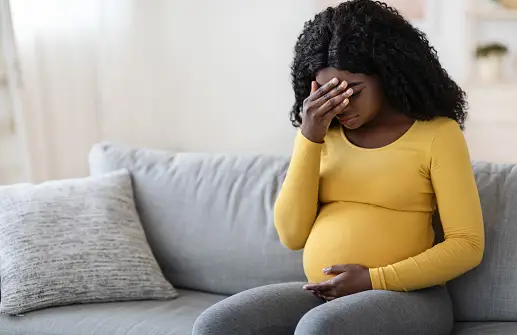Going through a miscarriage is a painful experience. Mostly because you've envisioned what your baby would look like upon delivery. A miscarriage isn't planned. You can put certain measures in place to reduce your chances of having one. Let's discuss how a miscarriage occurs first.
What is a Miscarriage?
A miscarriage is an event that results in the loss of a fetus during the early stage of pregnancy. Sometimes, it can also be called a spontaneous abortion. It typically happens during the pregnancy's first trimester or first three months.
According to the American Pregnancy Association (APA), about 10 to 25 per cent of all clinically recognised pregnancies end in miscarriage. The cause of a miscarriage varies from person to person.
What are the types of miscarriages?
There are many different types of miscarriage conditions;
- Blighted ovum: A fertilised egg implants into your uterine wall, but fetal development never begins.
- Complete miscarriage: Where the products of conception are expelled from your body.
- Incomplete miscarriage: The membranes are ruptured, and your cervix is dilated or thinned.
- Missed miscarriage: The embryo dies without your knowledge, and you don’t deliver it.
- Recurrent miscarriage: You’ve had three or more consecutive first-trimester miscarriages.
- Ectopic miscarriage: An egg implants somewhere other than your uterus, usually in your fallopian tubes.
- Threatened miscarriage: Where bleeding and cramps point to a possible upcoming miscarriage.
During pregnancy, your body supplies hormones and nutrients to your developing fetus. This helps your fetus develop normally during your pregnancy. Most first-trimester miscarriages happen because the fetus doesn’t develop normally.
What are the factors that trigger miscarriage?
- Genetic or chromosome issues
- External health conditions
- Risk factors
- Placental dysfunctions
- Ectopic pregnancy
Signs of a miscarriage
- Mild to severe back pain
- Heavy spotting
- Vaginal bleeding
- Expulsion of tissue with clots from your vagina
- Severe abdominal pain
- Cramps
Does having one miscarriage put you at a higher risk?
Having one miscarriage doesn’t increase your risk of having other miscarriages. Only one in 100 women experience three or more miscarriages in a row. Over 60 per cent of these women also go on to carry a baby to full term.
Though not all miscarriages can be prevented, having a miscarriage doesn’t mean you won’t conceive in the future. According to recent studies, only a few women have two or more miscarriages. Most women have healthy pregnancies later.
How to prevent a miscarriage
It is not entirely possible to prevent a miscarriage, but you can lower your risks. Some of these measures include;
- Avoid smoking
- Avoid excess caffeine intake
- Consume more fruits and healthy snacks
- Avoid exposure to long exposure
- Maintain a healthy weight
There are different types of miscarriages, and they differ in presentation. Most times, some women have more than one miscarriage and still have a baby at full term. You cannot prevent miscarriage, but living a healthy lifestyle helps to lower your chances.
If you're going through a miscarriage, talk to your spouse or loved one. It's a challenging experience and sometimes can be traumatic. Ensure you have a support system to rely on. Stay safe, mama!










Comments